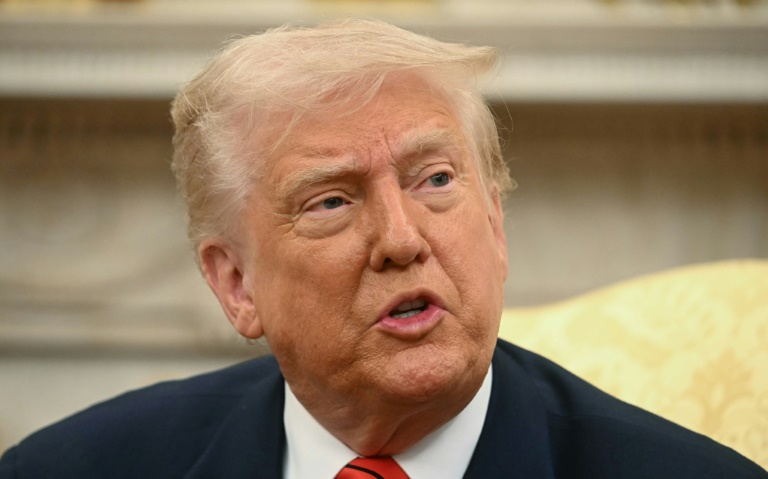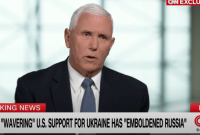Voicing frustration over the lack of success in ending Russia’s invasion of Ukraine, US Secretary of State Marco Rubio called for renewed focus on “our number-one geopolitical foe” — China.
“I wouldn’t say that a war in Ukraine isn’t significant, but I believe that what’s occurring with China will have greater importance over time when it comes to shaping the world’s future,” Rubio stated to Fox News anchor Sean Hannity.
President Donald Trump’s inner circle has long spoken of China as the arch-enemy, with some suggesting that ending the Ukraine war will free up resources to counter Beijing — especially if it seeks to move on Taiwan.
Even after over 100 days into Trump’s administration, many people have observed an unexpected scarcity of focus on China. Although Trump has imposed significant tariffs on China, there hasn’t been much in terms of a clearly defined approach since then.
Rubio, who during his Senate confirmation hearing cautioned that China could influence “practically every aspect of our lives” within ten years, hasn’t toured East Asia. This oversight draws focus to Trump’s emphasis on deporting largely Latin American immigrants and engaging diplomatically with Ukraine instead.

“The White House expected to be in a more favorable position with China by this time than they currently are,” stated Wendy Cutler, a former senior US trade negotiator and current vice president at the Asia Society Policy Institute.
Trump’s trade battle intensified so rapidly that it has become difficult to reverse, she stated.
She mentioned that China is “pursuing a long-term strategy,” with President Xi Jinping motivating the public by attributing economic difficulties to the United States.
– Faith in Xi ties –
Trump is encircled by well-known hawks like Rubio, who has taken up the role of interim national security advisor. However, Trump operates through deals and seems “infatuated with Xi Jinping,” according to Cutler.
“He thinks that they get along well, and that if it’s leader to leader, they can figure out this relationship and put it back on track,” she said.
The United States and China plan their first formal trade talks this week in Switzerland, over a month after Trump unveiled his sweeping levies.
Trump, who has vowed to remake the global economic system, has slapped 145 percent tariffs on products from China, which has responded with 125 duties on imports from the United States.
“Their economy is suffering greatly because they’re not doing trade with the US,” Trump told reporters Tuesday.
– ‘Nuanced’? –
Trump has shown himself to be far more radical than in his first term on a host of issues. But he has shown signs of pragmatism on China, despite heated rhetoric against Beijing on the campaign trail.
David Perdue, a former senator and Trump’s pick for ambassador to Beijing, wrote about China during the campaign that “America is at war” — but in his confirmation hearing said that the US approach should be “nuanced, non-partisan and strategic.”
The previous administration led by President Joe Biden characterized China as their primary competitor yet aimed to collaborate on specific issues like combating climate change and restricting the flow of fentanyl.
Nevertheless, the Biden administration also adopted a wider regional approach aimed at confronting China via partnerships.
This initiated a realignment of U.S. troops in southern Japan and northern Philippines — areas close to Taiwan — and sought alliances aimed at opposing the deployment of advanced Chinese technology.
Trump has derided allies, especially in Europe, as freeloaders, and has hit even US friends with tariffs, although he relented at least temporarily on higher rates.
China has swiftly approached Japan and South Korea, two of the nearest US allies, to discuss the possibility of establishing a free-trade agreement.
Ali Wyne, an analyst with the International Crisis Group focusing on China, stated, “By weakening key American alliances and collaborations throughout Europe and Asia, he diminishes the influence that the U.S. can exert regarding China.”
He similarly wondered about where the tariff war fits into a well-thought-out strategy regarding China, noting that this situation gives China motivation to increase its efforts towards becoming more self-reliant. Additionally, he pointed out that China has managed to portray itself as “a more stabilizing geopolitical influence compared to the leading global superpower.”
“Despite his alleged friendship with Xi and his stated desire for the United States and China to collaborate more robustly, he has created a trade impasse from which neither leader has an easy face-saving off-ramp,” Wyne said.
sct-lb/md/des






